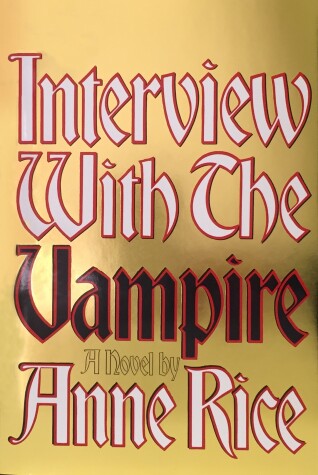Reviewed by Amber (The Literary Phoenix) on
Honestly? Interview with the Vampire is just plain boring. It is told in interview format, but 95% of the book is just Louis talking. For as poetic a speaker Louis may be, telling your entire story in dialogue means description is sparse. And the way Interview With the Vampire is told, it is in first person past tense so everything was reflective. When something exciting or terrifying was happening to Louis, Lestat, and Claudia… I was just bored. Because Louis is so detached from all the events in his life, his does nothing to intrigue the reader. He spends his immortal life wishing he was human and to feel purposeful and alive again, and everything falls short. And, so Interview With the Vampire, too, falls short.
Characters outside of Louis are far more interesting. Claudia, for one, is horrible and terrifying. Lestat, of course, is a curious, interesting character. Several books later in the Vampire Chronicles are told from Lestat’s POV, and from my recollection, those books are exponentially more interesting. We know a little of Louis’ past and the people he cared for, but there’s not enough depth of emotion in him at all for the reader to get attached. Lestat has passion, Claudia has malice… Louis has patient discontent. Patient discontent is not interesting.
This novel spans from New Orleans to Venice and back, and while I didn’t love The Witching Hour, I know Anne Rice has the capability of bring New Orleans to life. She showed none of that charm in her world building for Interview With the Vampire. From a more pretentious POV, I think I can say that she didn’t bother with the depths of setting because it would interrupt the flow of the storytelling. But, again, I didn’t care for this choice. She relies entirely too much on Louis to bring interest to the story, but Louis would rather argue the philosophies of good and evil to the point of redundancy.
Honestly, I think the heart of my problem here is that I didn’t like Louis. Because the story is told from his POV and from his pace and honestly for a vampire, he isn’t very interesting… I didn’t enjoy the book. Anne Rice is in the habit of writing long books that go nowhere. Interview With the Vampire is no exception. Her vampires are interesting, but there’s not a lot of discussion into their biology – more their philosophical natures. We know they must kill every night and that they can subside on any blood. They cannot go out in the sun and they are excruciatingly difficult to kill otherwise. We know they have fangs and that, according to Louis’ very long philosophical observations through the extent of this novel – they are inherently evil.
So that’s what I got from this book. 15 hours of: “Surprise! Vampires are evil, because they clearly aren’t good.” No alluring scenes, no memorable characters. If Interview With the Vampire had been published now instead of 1976 when books such as this were virtually unheard of, I do not believe it would have been so iconic.
It’s classic vampire literature. It’s not swoon-worthy. It’s not particularly thrilling. But it’s classic. Read at your own risk.
Reading updates
- Started reading
- 23 July, 2019: Finished reading
- 23 July, 2019: Reviewed
- Started reading
- Finished reading
- 23 July, 2019: Reviewed
